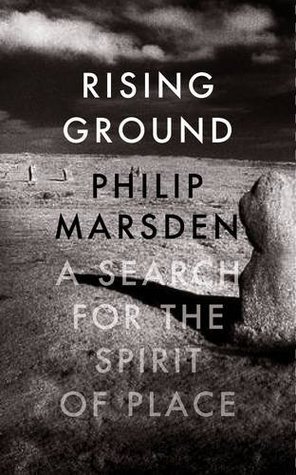
The Blurb (from Goodreads)
Why do we react so strongly to certain places? Why do layers of mythology build up around particular features in the landscape? When Philip Marsden moved to a remote creekside farmhouse in Cornwall, the intensity of his response took him aback. It led him to begin exploring these questions, prompting a journey westwards to Land's End through one of the most fascinating regions of Europe.
From the Neolithic ritual landscape of Bodmin Moor to the Arthurian traditions of Tintagel, from the mysterious china-clay country to the granite tors and tombs of the far south-west, Marsden assembles a chronology of our shifting attitudes to place. In archives, he uncovers the life and work of other 'topophiles' before him - medieval chroniclers and Tudor topographers, eighteenth-century eighteenth-century antiquarians, post-industrial poets and abstract painters. Drawing also on his own travels overseas, Marsden reveals that the shape of the land lies not just at the heart of our history but of man's perennial struggle to belong on this earth.
My Thoughts:
I love books which take a place or a time or a person or a natural phenomenon, and then uses that as a springboard into a wide-ranging meditation on art, history, science, poetry, or any manner of things. And I have always wanted to go to Cornwall.
So I was interested in Rising Ground as soon as I heard about it.
Philp Marsden has a degree in anthropology and has written a number of books about his travels in Ethiopia and Russia, as well as numerous essays for The Spectator. He was, however, raised in Cornwall and recently bought a farmhouse on a creek there with his wife and children. The book is not a memoir of the renovation of this old house, though some of his personal experiences are woven into the narrative. It is more about ‘topophilia’, a lovely word which means ‘love of place’, and examines some of the little-known but interesting people of the past who have loved Cornwall and studied it and written and painted about it.
It’s the sort of book that you can pick up and enjoy, then put down and not pick up again for a few weeks, as each chapter is an essay on a particular aspect of Cornwall. I was particularly interested in the chapters on the standing stones and barrows and graves and other ancient monuments, and on the blind-and-deaf Cornish poet Jack Clemo, who I had never heard of before.
A really interesting read.
You might also like to read my review of The Shepherd's Life by James Rebanks:
https://kateforsyth.com.au/what-katie-read/vintage-book-review-the-shepherds-life-by-james-rebanks

